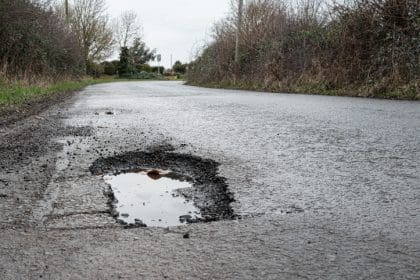Fare dodging is theft and it is something taxi drivers face every day – but attitudes need to change in order to tackle it.
Someone travelling on a plane or a ship would be classed as a stowaway and arrested as soon as they reached their destination. The government also continues to remind people that travelling on trains, trams, or buses without a ticket is a criminal offence that can lead to large fines and even prison.
But for some reason, people don’t view dodging taxi fares as criminal – which is exactly what they are.
Knowing the law
Unfortunately, that was the message cabbies in Brighton were getting from police. The Brighton and Hove News website reports that officers in the city told taxi drivers fare dodging is a civil offence and not a criminal matter.
Brighton taxi driver Kiz Gidis told the news site that cabbies were facing the problem three or four times a week and drivers had had enough. The issue is a bigger problem for black-cab drivers who, under their public hire insurance, can pick up people in the street or at taxi ranks without any details and who don’t usually pay until the end of the journey. Payments for private-hire vehicles are often made via booking apps and are becoming less of a problem.
Mr Gidis told the site: “The message we’ve had from the police is that it’s a civil matter. The customer hears that and thinks they’re in the right.
“We do have some members of the community who milk the system. They know they’re going to get away with it and so they keep doing it.
“The older cabbies have a sense of when someone’s not going to pay. But if you’re going through a financial struggle and you’re offered a job, you’re more likely to take the risk.”
Clear warning
After discussions with senior officers, police are now cracking down on the problem and cabs have signs warning passengers that fare dodging is a criminal offence. Drivers feel that the signs will make a difference by not only warning passengers, but also by giving something they can show officers if the issue crops up again.
Taxi drivers in Ipswich faced the same trouble, with police initially telling them it was a civil matter.
While most people wouldn’t steal from a shop or a business, some see dodging taxi fares as a misdemeanour, believing that the worst-case scenario is they will have to pay the outstanding fare.
But as well as being prosecuted and facing a criminal record, fare dodgers are also hit in the pocket. In Carlisle, one passenger ended up paying nearly 20 times the value of her £7 fare after trying to dodge it, the News and Star reports.
A court heard she had been drinking when she made the decision not to pay, but booked the taxi in her own name and gave her home address as the destination. Even if she had tried to give false details, this was one fare she was never going to dodge as the taxi was being driven by an ex.
Advice to drivers
In both the Brighton and Ipswich cases, the issue faced by taxi drivers was that officers dealing with the incident were unclear of the law and did not take action. While the problem might not get resolved at the scene, they must pursue it.
In both instances, the message is to take the issue higher up the ranks – even the Police and Crime Commissioner as in the case in Ipswich – so the problem can be tackled.
Taxi drivers are also good judges of character and often have a sixth sense about passengers who are going to be difficult. In these instances, they are well within their rights to ask for full payment upfront, or at any time during the journey.
This can avoid aggravation at the end of a journey and gives the driver the opportunity early on to allow the passenger stop at an ATM point early on if a lack of cash is going to be an issue.




